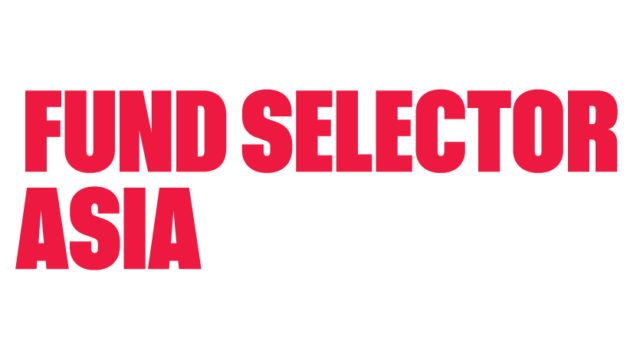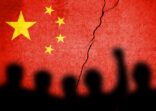China’s capital controls, it is widely assumed, have led to the halt in quota issuance for the Qualified Domestic Institutional Investor (QDII) scheme, which allows domestic investors to invest money outside mainland China.
The controls are also assumed to be behind the suspension of China’s approval of northbound funds for sale through the Mutual Recognition of Funds.
But Rothman, who spoke to a small group in Hong Kong yesterday, said the halt in QDII quota is unlikely to have anything to do with capital controls.
“I’m not aware of any stricter enforcement or new controls on capital outflows related to the financial industry. No one participating in any cross border plans told me they’ve heard about difficulties getting money in and out.”
He said that Chinese investors in Hong Kong funds are in any case required to repatriate the principal amount to China once cashing out. “So why would authorities worry about [QDII quota]? I can’t address why QDII has been halted, but I don’t think it is due to capital controls.”
Strict, but not new
There are no new capital controls, but there is definitely stricter enforcement of existing controls, Rothman emphasised.
The purpose of stricter enforcement, he believes, is a mixture of controlling outbound SOE investment (so a cement plant can’t buy a German football club, for example) and stemming capital outflows.
“Authorities are worried mostly about the appearance of sharp spikes in any one month in the volume of capital outflows, rather than trying to stop these flows.”
He believes stricter control is a reaction to the spikes seen in late 2015 and early 2016 “when hedge funds got excited and that got investors excited” about a capital flight crisis. Rothman attributed the huge outflows to a carry trade by Chinese corporates in Hong Kong that has since played out.
Capital outflow is not capital flight, he said.
“Capital flight is when people lose confidence in the government’s ability to manage the economy and sell their [domestic assets]. But I always ask the people who help Chinese move money out if they are helping Chinese sell their business investments in China and the answer is always no.”
He also cited central bank data that showed household bank deposits have grown 9.5% year-on-year in 2016, up from 7.5% the previous year. He said the data was consistent with strong income and consumption growth in China.
“There is absolutely no reason to not believe the central bank statistics.”
Market participants, however, widely suspect Chinese government data, particularly GDP growth, has long been manipulated for political reasons. In January this year, state-run media reported that a Chinese official from Liaoning province admitted his province falsified its economic data for several years.
Empty manipulator threat
The US president has long railed against China as a currency manipulator and a driver of US job losses, among other things. (For deeper analysis on “Trump, Trade & China” see Rothman’s Sinology newsletter).
But he said China not only does not fit the US government definition of a currency manipulator, in any case, if the US actually labelled China in that way, “the consequences would be zero”.
Two things will happen according to US procedure on countries that manipulate currency, he said. First, the US has to negotiate with China for one year. If unsuccessful, the US then must prohibit the Overseas Private Investment Corporation from assisting US companies in China. However, a ban on OPIC has been in place for years. The second penalty? The US asks the IMF to monitor China.
“In effect, zero concrete consequences for China. My view is if the US calls China a currency manipulator, [Chinese authorities] will ignore it. Media excitement may impact sentiment and markets but only for a few days when people realise this doesn’t have teeth. This is all about US domestic politics.”
Equities bull
For 2017, Rothman sees a surprise to the upside in China’s corporate earnings. “Corporate profits have improved dramatically since last year and A-share companies are now saying that they have raised guidance significantly. We’re looking at a pretty good year for China.”
He warned against China exposure through index funds. “The passive approach taken in developed markets is not the right approach [in China]. Indexes are backward looking here. They are way too light on consumer services and too stacked toward state owned enterprises, and they don’t do due diligence.”
In June, the MSCI will again make a decision on whether to include China A-shares in key global indices, which would bring foreign capital into China. Rothman said it would happen, though he didn’t have a view on when.
“From an investors’ perspective, you have to assume China is going to be included and inclusion will be phased in gradually.
“And if you’re thinking you want to own more China when that happens, then you probably want to do that now before it happens and everyone stars rushing in.”
Two risks
The mistake people make, Rothman said, is to assume China’s state-controlled economic and financial system is the same as the US or UK. “It’s different. Not necessarily better or worse, but different.”
Rothman’s thesis, however, rests on his strong confidence in the Chinese government to effectively manage any economic crisis that emerges.
He does cite as the second biggest risk (the first being some outlandish move by Trump) the Chinese government making “a cascading series of policy mistakes”.
He mentioned past mistakes such as the quick introduction and withdrawal of a market “circuit breaker” in attempt to control a crashing stock market and last year’s surprise devaluation of the RMB.
“I believe the government learns from past mistakes so it is not my base case. But it’s something I’m keeping an eye on.”
















